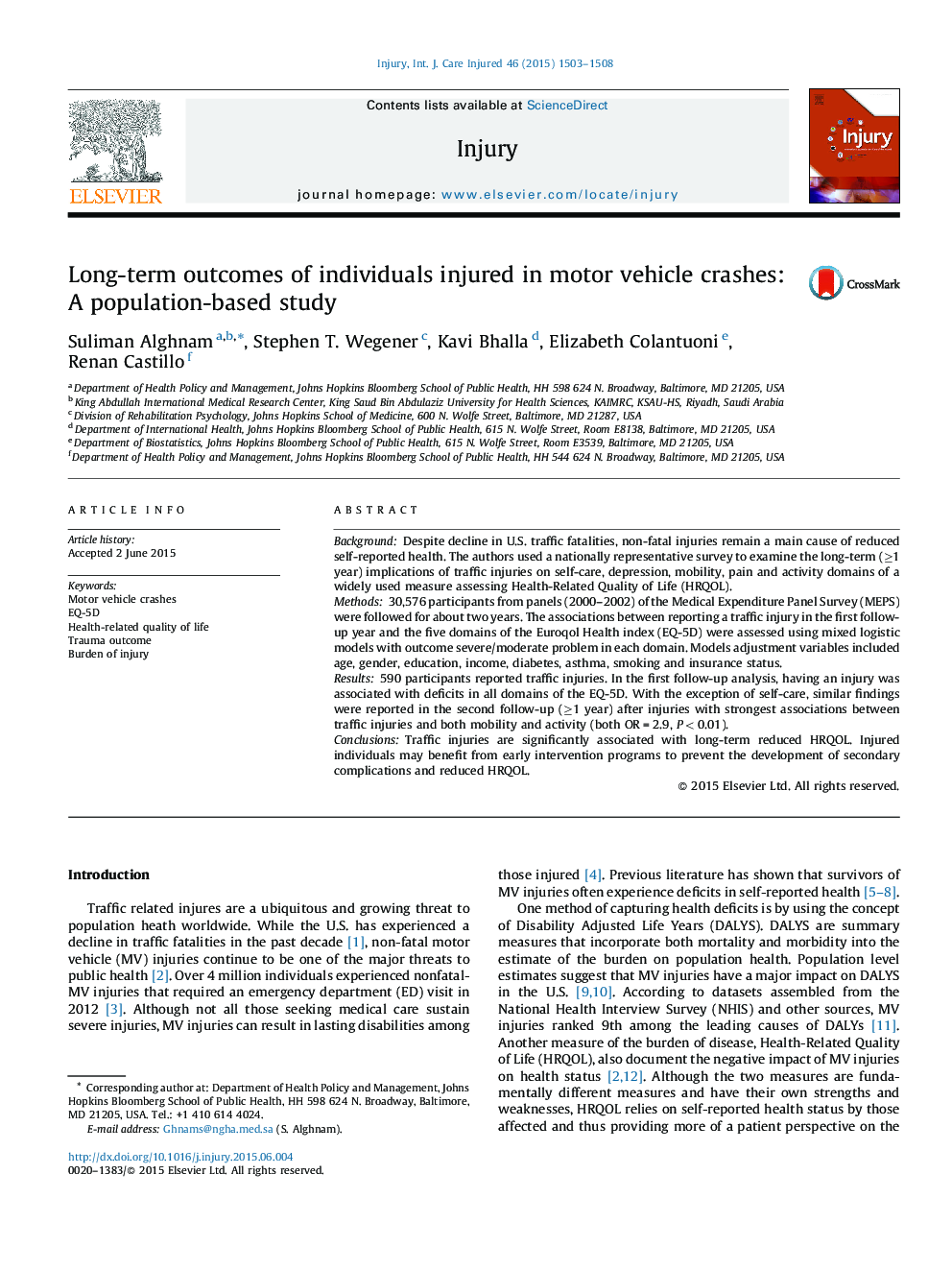| Article ID | Journal | Published Year | Pages | File Type |
|---|---|---|---|---|
| 3238888 | Injury | 2015 | 6 Pages |
BackgroundDespite decline in U.S. traffic fatalities, non-fatal injuries remain a main cause of reduced self-reported health. The authors used a nationally representative survey to examine the long-term (≥1 year) implications of traffic injuries on self-care, depression, mobility, pain and activity domains of a widely used measure assessing Health-Related Quality of Life (HRQOL).Methods30,576 participants from panels (2000–2002) of the Medical Expenditure Panel Survey (MEPS) were followed for about two years. The associations between reporting a traffic injury in the first follow-up year and the five domains of the Euroqol Health index (EQ-5D) were assessed using mixed logistic models with outcome severe/moderate problem in each domain. Models adjustment variables included age, gender, education, income, diabetes, asthma, smoking and insurance status.Results590 participants reported traffic injuries. In the first follow-up analysis, having an injury was associated with deficits in all domains of the EQ-5D. With the exception of self-care, similar findings were reported in the second follow-up (≥1 year) after injuries with strongest associations between traffic injuries and both mobility and activity (both OR = 2.9, P < 0.01).ConclusionsTraffic injuries are significantly associated with long-term reduced HRQOL. Injured individuals may benefit from early intervention programs to prevent the development of secondary complications and reduced HRQOL.
